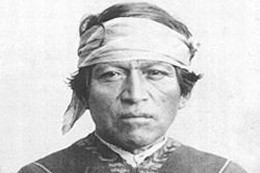Young people from 6 schools based in the cities of Puerto Saavedra and Carahue in Chile wrote a special ebook and produced a documentary, Epew Pichikeche ñi Rakizuam, which translates to The Thoughts of Children in English. The children created the stories on their own, without the help of their families or teachers. They were able to do this in special workshops that were conducted to help children tell stories in their own words.
Mapuche is spoken by 240,000 to 700,000 people in the southern parts of Chile and in western Argentina. Mapuche is also referred to as Mapudungu or Araucanian. Mapu means land and dungun means speech. Mapuche has been classified as a language isolate by many linguists. This means that there are no other languages related to it. However, other linguists say that the language is related to the Penutian languages that are spoken in Northern America, while other linguists link it to Mayan, Andean and Arawakan languages. Mapuche has loan words from the Quechua language and Spanish. Mapuche has different dialects. This includes Moluche, Pehuenche, Ranquenche, Huillice and Nguluche.
The Mapuche language could be in danger of being phased out. This is mainly because the official language spoken in Chile and Argentina is Spanish. Furthermore, Mapuche is an oral language passed down from one generation to the next. This means that it has not always been properly documented. Also, after the Conquest of the Desert, most Mapuche communities were socially marginalized, which led them to stop teaching their children the language, who now grow up speaking Spanish and not Mapuche. Originally, there were about 2 million Mapuche speaking people in a region which presently covers half or Chile and half of Argentina. Currently, there are a number of organizations that are working to ensure the preservation and continuity of the language in Chile by trying to come up with a Mapuche alphabet. Luis de Valdivia published the first Mapuche grammar book in 1606 while Andrés Febrés came up with the first dictionary of Mapuche in 1765.
